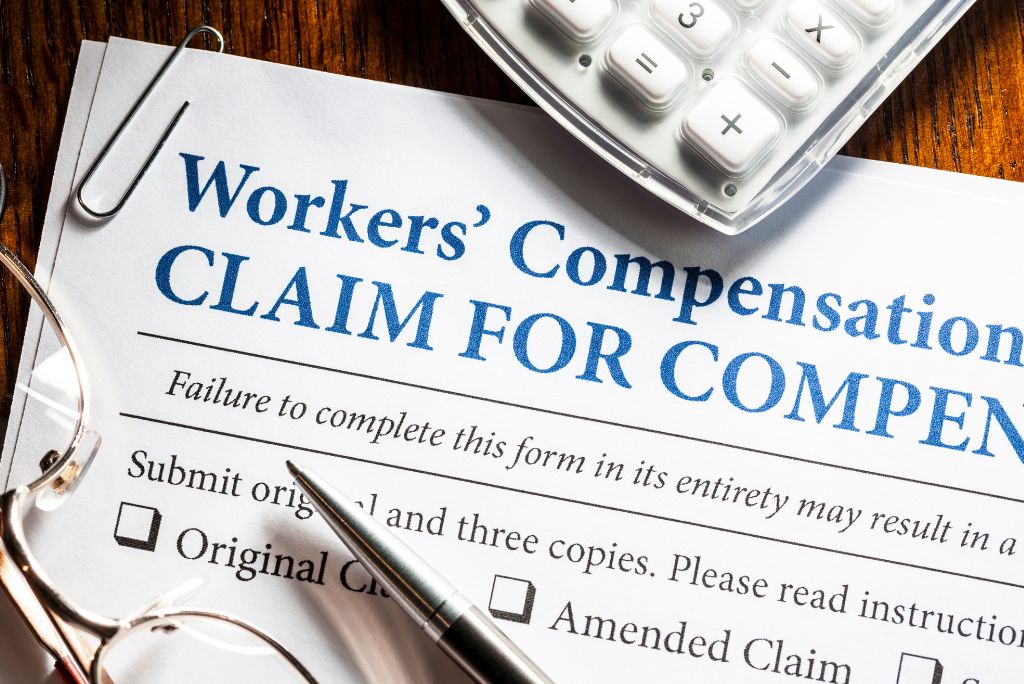
Workplace accidents can be harmful to your health and wallet. Workers’ compensation was established to help with expenses like these after a workplace injury, or illness has left an employee unable to work.
Workers’ comp may cover workplace injuries. Dependents may receive benefits if a family member dies in a workplace accident.
If you are unfamiliar with workers’ compensation laws, navigating a workplace injury can be incredibly challenging. Injured workers often believe they are receiving workers’ compensation when, in reality, they are receiving a severely reduced version of their benefits. It is why it’s crucial to work with a skilled workers’ compensation attorney who can fight for your rights and help you get the compensation you deserve.
What is the Definition of Workers’ Compensation?
Under state law, most workers who sustain work-related injuries or occupational diseases are eligible for workers’ compensation benefits. The party at fault in an accident is usually irrelevant when determining whether or not to pay these benefits.
In its simplest form, workers’ compensation allows injured workers to receive compensation for work-related injuries without having to sue their employer.
Workers’ Compensation Does Not Cover What Kinds of Injuries?
Workers’ compensation covers workplace injuries. Some injuries and situations are not covered. Workers’ compensation benefits can be withheld in states where the injured worker was impaired. These situations also disqualify compensation:
- Caused by oneself
- Occurred because the worker engaged in illegal activity
- It wasn’t a work-related accident
What Is Covered by Workers’ Compensation?
Workers’ compensation insurance provides financial support, albeit on a small scale.
- Treatment for the illness or injury that caused it
- Restitution Income
- Remuneration for training
- Payment for any long-term damage
- Survivor benefits for workers killed on the job
It is important to remember that if an employee receives workers’ compensation benefits, they are barred from suing their employer. Furthermore, pain and suffering are not compensated for by workers’ comp.
Generally, workers’ benefits will replace two-thirds of their average weekly wage up to a predetermined cap. Although that seems low, remember that these payments are not subject to taxation. There shouldn’t be any significant issues as long as the worker is compensated fairly.
Do Permanent Injuries Qualify for Workers’ Compensation?
Yes. Accidental injuries are not the only thing covered by workers’ comp. As a result of engaging in the same harmful activity repeatedly over time also covers resulting problems and illnesses.
Repetitive stress injuries can manifest in many ways, such as carpal tunnel syndrome in the hands or back pain. The long-term effects of some workers’ exposure to harmful chemicals or substances may not become apparent for many years.
To What Employees Do Workers’ Compensation Benefits Apply?
Workers’ compensation insurance generally applies to most types of workers. However, states often make exceptions for certain employees, including:
- Workers whom a company does not employ
- Owners of commercial establishments
- Volunteers
- Workers in residential establishments
- Agricultural laborers and farmhands
- Rail workers
- The contingent workforce
Because federal workers are covered by the federal workers’ compensation insurance program, state workers’ comp does not apply to them. Depending on the state, businesses with fewer than three to five employees may be exempt from workers’ compensation requirements. There is regional variation.
Can You Sue Your Employer if You Got Hurt?
Workers’ Compensation was established as an alternative to tort claims in workplace injuries. However, depending on where you were injured, you might still be able to file a lawsuit against your employer if they were negligent or malicious in causing your harm. If an employee is injured and later dies due to that injury, a wrongful death lawsuit may be possible in some states. Generally speaking, doing so will constitute a waiver of your right to workers’ compensation benefits.
Punitive damages, medical costs, lost wages, pain and suffering, and mental anguish is some potential outcomes of a successful lawsuit.
Can the Employer Terminate Employment Upon Receiving a Workers’ Compensation Claim?
Unfortunately, this is illegal in the vast majority of states. Employees are encouraged to notify their state’s workers’ compensation agency as soon as possible if their employers show any sign of retaliation after an employee files a claim for workers’ comp benefits.

